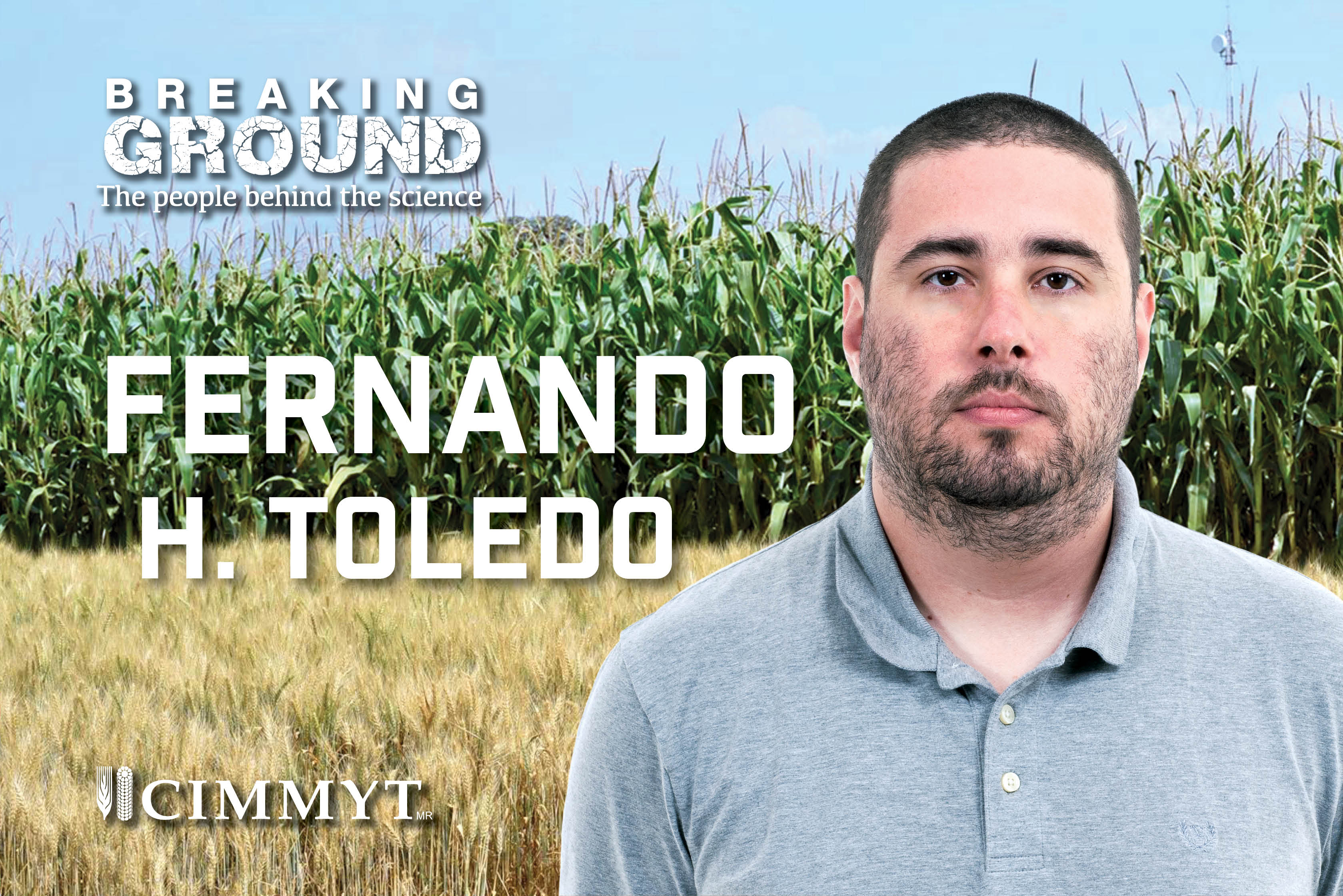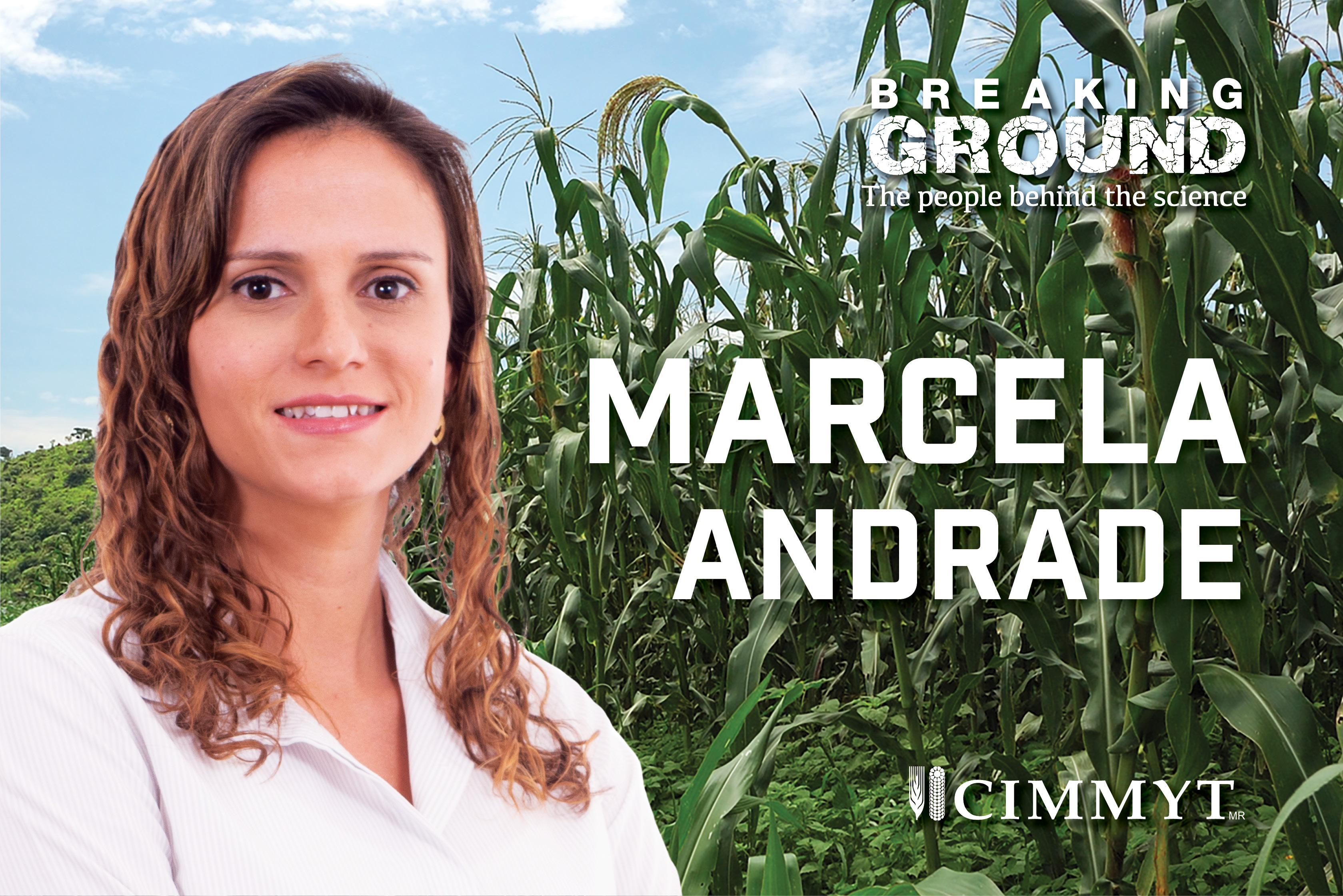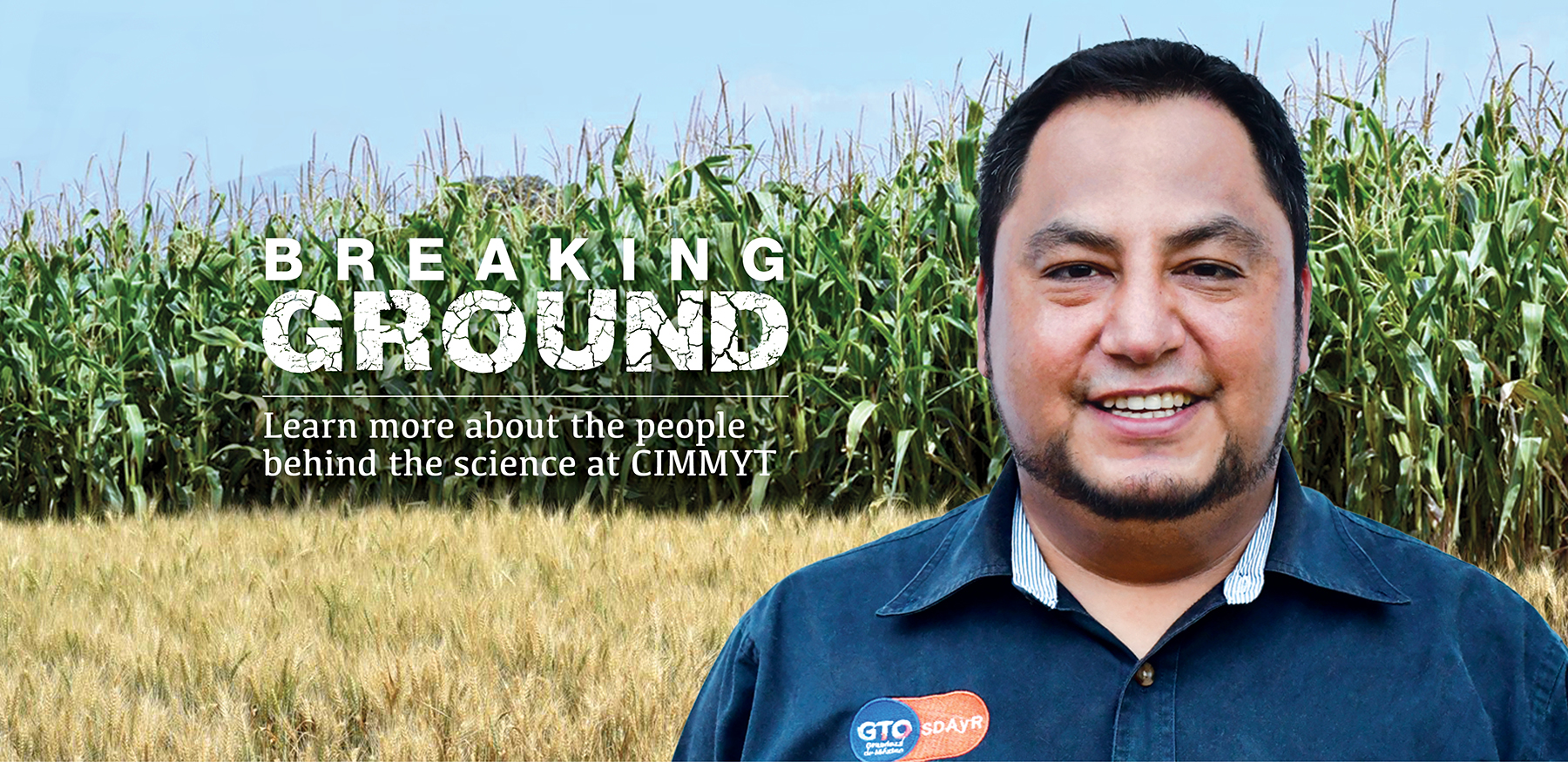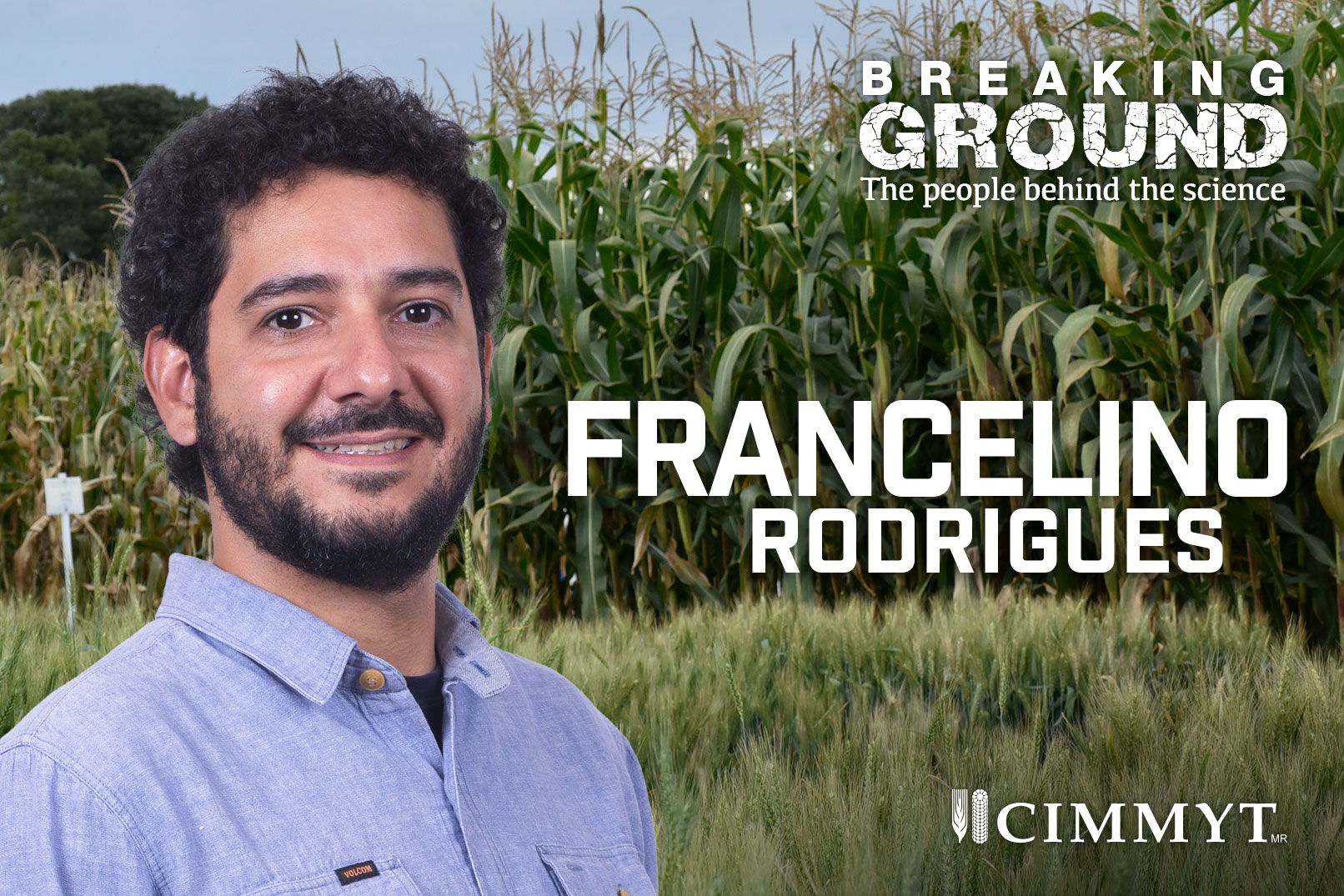
Genomics is a wide theme of interest for geneticists. As part of the efforts to advance on this subject, Fernando H. Toledo, associated scientist in agricultural statistics at the International Maize and Wheat Improvement Center (CIMMYT), is working on the research of genomic selection models to increase accuracy. His research considers several complex traits and environmental conditions under climate change scenarios.
The research in which Toledo works is multidisciplinary — it involves genetics and breeding knowledge, as well as statistics and computer science. “This work is fundamental for the breeding and farming community. Our aim is to allow breeders to pursue precise selection of new genetic materials with good performance and ensuring food security in the field under varying environmental conditions.”
Fernando H. Toledo was born in São Paulo, Brazil, but grew up in Curitiba, Paraná, one of the biggest agricultural states in the country. He obtained his engineering degree, with a major in crop science, at Paraná Federal University.
He got his master’s degree in genetics and plant breeding at Lavras Federal University, under the supervision of Magno Ramalho, one of the most prestigious breeders in Brazil. During his Ph.D. in quantitative genetics at the Agricultural College of the University of São Paulo, Fernando was advised by Roland Vencovsky, known as the father of quantitative genetics in the country. “The main lesson I took from both of them was that biometrics science must try to answer the breeders’ questions.”
Toledo got a scholarship from the Brazilian National Council for Scientific and Technological Development (CNPq) to spend a season at CIMMYT in 2013, where he developed part of his thesis about the use of selection indices under the supervision of José Crossa.
CIMMYT’s work is highly relevant to breeding activities in Brazil. It dates back to the 1950s when Brazilian breeders and geneticists took maize populations and varieties to be important resources of their current germplasm. “The public and private sectors in Brazil recognize the importance of CIMMYT, which awoke my interest in working in a relevant institute for agriculture in developing countries.”
In 2015, Toledo applied for a postdoctoral position at the Biometrics and Statistics Unit of the Genetic Recourses Program at CIMMYT. He started working as an associate scientist in 2017.
As part of this unit, Toledo is currently involved in the planning and analysis of field trials comprising phenotypic and genomic data. He is developing new models and methods for these analysis as well as plant breeding simulations. “Genomic selection has been used over CIMMYT’s breeding programs before but there are still a lot of improvements to implement, so new models of analysis can be tested under simulated scenarios, which results in better recommendations for breeders.”
On top of that, he is implementing new open-source high-performance software products to facilitate the use of cutting-edge methods for data analysis. “I really like the connection we can build at CIMMYT in terms of practical work for breeders and the development of new statistical methods, models, tools and software we release to attend their requirements, with the main aim of improving precision during the selection of the best genetic materials.”
Led by Juan Burgueño, senior biometrician and head of the Biometrics and Statistics Unit, Toledo is training students, scientists and partners regarding statistical concepts and data analysis. “These trainings courses are a great opportunity to share our work with others and to learn the scientists’ needs in order to improve our capabilities.”
Toledo’s main inspiration to continue his work at CIMMYT is having the opportunity to generate knowledge for others in developing countries. “Our work is driven by the breeders’ needs and that usually helps them to improve their understanding by using what we developed for them and making it a forward-backward relation, which is fascinating.”

 Innovations
Innovations 
